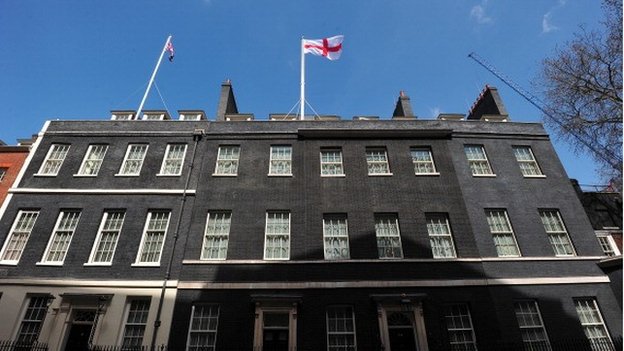So the Labour Party has walked out of the cross party talks on constitutional reform this week, but I don’t think it really came as shock to anyone.
They are in a spin about how to deal with the new arrangement promised to the English by David Cameron following Scotland’s decision to remain part of the UK. The Prime Minister lobbed a constitutional grenade into British politics when he announced there would be a fair deal for England and it is one that I believe will shape the direction of politics for the foreseeable future.
Mr Cameron however is absolutely right, as there does need to be a new deal for England because when the devolution took place in the late 1990s, Scotland, Wales and Northern Ireland all got their own parliament and assemblies and yet the English got nothing.
This has led to a democratic deficit whereby Scottish, Welsh and Northern Irish MPs can vote on English only issues, such as education, health and transport, but the English cannot return the favour because these areas are devolved and dealt with by their respective parliament and assemblies.
This anomaly was best highlighted by the university fees top-up vote in 2004, which only affected English students, but forty-six Scottish Labour MPs secured a victory for the Blair government by a mere five votes on an issue that was already devolved to the Scottish Parliament. It was nothing short of a disgrace and highlights why the status quo is not an option.
But what are the Westminster politicians going to do about it I ask?
It seems the Conservative leadership are keen on English votes for English laws, whereby Scottish, Welsh and Northern Irish MPs would not take part in debate or vote on issues that only concern the English. UKIP’s Nigel Farage has already posted letters to all fifty-nine Scottish MPs asking them to voluntarily remove themselves whilst proposals are being drawn up.
Some Conservatives, such as John Redwood and Bernard Jenkin, have gone even further and called for an English First Minister, which I wholeheartedly agree with. However, this logically leads on to the question of an English Parliament, similar to that of the Scottish, sat in by English representatives who are separate from the MPs at Westminster and, who like their Scottish counterparts, just deal with devolved issues.
The Tories do not seem to have the stomach for this. Speaking after a meeting of backbenchers at Chequers, the former Health Secretary Andrew Lansley said that there was “little appetite” for a separate English Parliament, due to all the additional bureaucracy and cost it would entail.
However, this line of argument, used by MPs and parroted by some in the media, does not stand up to scrutiny.
Firstly, the Scottish have both Members of the Scottish Parliament (MSPs) and Members of Parliament (MPs), as do the Welsh and Northern Irish, so there is no logic in saying that it could not be offered to the English.
Secondly, Scottish MPs, Welsh and Northern Irish MPs do not deal with devolved issues – that is left to their relevant parliament and assembly members – so I cannot see why the English should be any different.
Thirdly, the argument that a separate English Parliament would cost more money equally crashes on the rocks of logic when one considers that we could decrease the number of MPs, whose role would be reduced to dealing with non-devolved issues like foreign policy and defence, to pay for it.
I suspect the real reason MPs are opposed to a separate English Parliament is because to support one would be akin to ‘turkeys voting for Christmas.’
And where does the Labour Party fit into all of this? We already know they don’t want English votes on English laws, but equally they won’t want an English Parliament either.
Shadow Business Secretary Chuka Umunna enlightened us when he said that ‘there is already a bus that is moving towards further devolution and a federal model. Not necessarily with an English parliament because the different regions of England have their own identities and are very proud of what and who they are.’
In other words, Labour is returning to its failed policy of regionalisation, no doubt based on Euro-regions. I say ‘returning’ because this policy failed ten years ago when the people of the North East voted in a referendum to reject John Prescott’s proposal for a North East Regional Assembly.
In championing regionalisation, the Labour Party is doing the bidding of the European Union’s Committee of the Regions, which like Labour, fears nothing more than a strong eurosceptic England, even more so with its own identity and its own parliament.
I believe we need a new English Parliament, which mirrors that of the Scots. We also need a First Minister and separate English Parliamentary elections. We could then halve the size of the House of Commons to pay for such a move, as MPs roles would be reduced significantly. I believe then and only then will we have a truly balanced federal United Kingdom which has a chance of surviving well into the twenty-first century.
The silent English majority has remained silent for years, but I suspect that silence won’t last much longer without real equality.

COMMENTS
Please let us know if you're having issues with commenting.